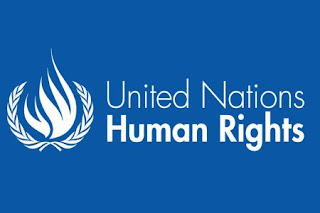Το τι οφείλει να κάνει ένας Πρωθυπουργός που σέβεται τη δέσμευσή του απέναντι στο λαό που τον ψήφισε και τη χώρα του, ιδίως όταν δέχεται τελ�

"Κανείς δεν μπορεί να περιμένει ο Πρωθυπουργός της Ελλάδας να παραιτηθεί από τις δεσμεύσεις που ανέλαβε προς εκείνους που τον εξέλεξαν με σαφή εντολή να διαπραγματευτεί μια δίκαιη λύση που δεν θα διαλύσει την ελληνική δημοκρατία και δεν θα οδηγήσει σε αύξηση της ανεργίας και της κοινωνικής εξαθλίωσης. Η συνθηκολόγηση στο τελεσίγραφο για την επιβολή περαιτέρω μέτρων λιτότητας στον Ελληνικό πληθυσμό θα ήταν ασύμβατη με τη δημοκρατική εμπιστοσύνη προς τον Έλληνα Πρωθυπουργό από το εκλογικό σώμα. Εκ φύσεως, κάθε κράτος έχει την ευθύνη να προστατεύει την ευημερία όλων των ατόμων που ζουν υπό τη δικαιοδοσία του. Αυτό περιλαμβάνει φορολογική και δημοσιονομική κυριαρχία και ρυθμιστικό χώρο που δεν μπορεί να χαλκευτεί από εξωτερικούς παράγοντες, είτε είναι κράτη, διακυβερνητικές οργανώσεις, είτε πιστωτές.
Το άρθρο 103 του Χάρτη των Ηνωμένων Εθνών ορίζει ότι οι διατάξεις του Χάρτη κατισχύουν όλων των άλλων συνθηκών, ως εκ τούτου, καμία συνθήκη, ή συμφωνία δανείου δεν μπορεί να υποχρεώσει μια χώρα να παραβιάσει τα πολιτικά, πολιτιστικά, οικονομικά, πολιτικά και κοινωνικά δικαιωμάτα του πληθυσμού της, ούτε μπορεί μια σύμβαση δανείου να ακυρώσει την κυριαρχία ενός κράτους. Οποιαδήποτε συμφωνία που θα απαιτούσε μια τέτοια παραβίαση των ανθρωπίνων δικαιωμάτων και του διεθνούς εθιμικού δικαίου είναι contra bonos mores (αντίθετη με τα χρηστά ήθη) και συνεπώς άκυρη, σύμφωνα με το άρθ. 53 της Σύμβασης της Βιέννης για το Δίκαιο των Συνθηκών.
Μια δημοκρατική και δίκαιη διεθνής τάξης απαιτεί
ένα εμπορικό και οικονομικό καθεστώς που θα διευκολύνει την υλοποίηση του συνόλου των ανθρωπίνων δικαιωμάτων. Οι διακυβερνητικές οργανώσεις πρέπει να προωθούν και σε καμία περίπτωση να εμποδίζουν την επίτευξη της πληρότητας των ανθρωπίνων δικαιωμάτων. Το εξωτερικό χρέος δεν αποτελεί δικαιολογία για να παρεκκλίνουν, ή να παραβιάζουν τα ανθρώπινα δικαιώματα, ή για να προκαλέσουν οπισθοδρόμηση κατά παράβαση των άρθρων 2 και 5 του Διεθνούς Συμφώνου για τα Οικονομικά, Κοινωνικά και Πολιτιστικά Δικαιώματα."
Πηγή
“All human rights institutions and mechanisms should welcome the Greek referendum as an eloquent expression of the self-determination of the Greek people in conformity with article 1 of the International Covenant on Civil and Political Rights and in pursuance of article 25 ICCPR on public participation. Indeed, a democratic and equitable international order requires participation by all concerned stakeholders in decision-making and respect for due process, which can best be achieved through international solidarity and a human rights approach to the solution of all problems, including financial crises.
It is disappointing that the IMF and the EU have failed to reach a solution that does not require additional retrogressive austerity measures. Some leaders have expressed dissatisfaction with the idea of holding a referendum in Greece. Why? Referenda are in the best traditions of democratic governance.
No one can expect the Prime Minister of Greece to renounce the commitments he made to the people who elected him with a clear mandate to negotiate a fair solution that does not dismantle Greek democracy and lead to further unemployment and social misery. Capitulating to an ultimatum imposing further austerity measures on the Greek population would be incompatible with the democratic trust placed on the Greek Prime Minister by the electorate. By nature, every State has the responsibility to protect the welfare of all persons living under its jurisdiction. This encompasses fiscal and budgetary sovereignty and regulatory space which cannot be trumped by outside actors, whether States, inter-governmental organizations or creditors.
Article 103 of the UN Charter stipulates that the Charter provisions prevail over all other treaties, therefore no treaty or loan agreement can force a country to violate the civil, cultural, economic, political and social rights of its population, nor can a loan agreement negate the sovereignty of a State. Any agreement that would require such a violation of human rights and customary international law is contra bonos mores and hence null and void pursuant to Art. 53 of the Vienna Convention on the Law of Treaties.
A democratic and equitable international order requires a commercial and financial regime that facilitates the realization of all human rights. Inter-governmental organizations must foster and under no conditions hinder the achievement of the plenitude of human rights.
Foreign debt is no excuse to derogate from or violate human rights or to cause retrogression in contravention of articles 2 and 5 of the International Covenant on Economic, Social and Cultural Rights.
In 2013, the Independent Expert on foreign debt and human rights stated that the policy austerity measures adopted to secure additional financing from the International Monetary Fund, the European Commission and the European Central Bank had pushed the Greek economy into recession and generally undermined the enjoyment of human rights, particularly economic, social and cultural rights.
This is the moment for the international community to demonstrate solidarity with the people of Greece, to respect their democratic will as expressed in a referendum, to proactively help them out of this financial crisis, which finds a major cause in the financial meltdown of 2007-08, for which Greece bears no responsibility.
Indeed, democracy means self-determination, and self-determination often calls for referenda – also in Greece.”
- See more at: http://www.ohchr.org/EN/NewsEvents/Pages/DisplayNews.aspx?NewsID=16170&LangID=E#sthash.Jvo54L3F.3Hw5LBtd.dpuf



